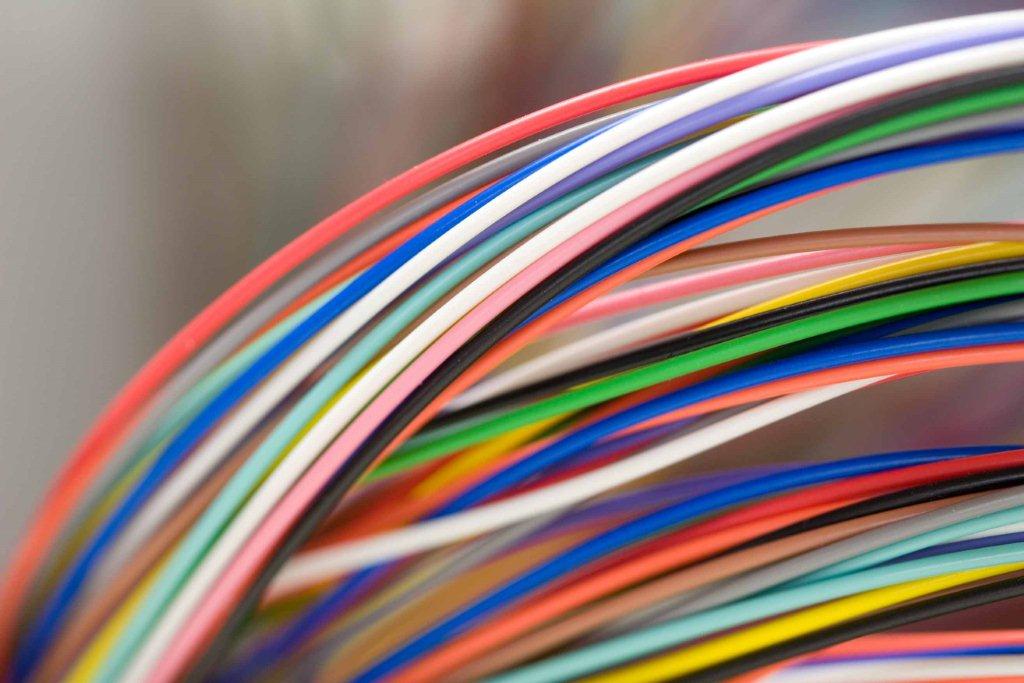Optical Fibre

WideCap-OM4 multimode fibre delivers OM4 performance in the 850-950nm window while maintaining compatibility with current multimode fibres. Traditional OM4 fibres offer high bandwidth in a narrow band centred at 850nm. To satisfy the exponentially increasing information demand in Data Centers, the capacity of WideCap-OM4 has been extended to longer wavelengths up to 950nm. WideCap-OM4 and multi-wavelength transceivers are a viable solution for future 100 and 400Gbps multi-wavelength systems. WideCap-OM4 incorporates BendBright® technology to withstand tight bends and cabling challenges in the data centre.

We believe that bend-insensitive optical fibres shouldn't have to come at the expense of other characteristics. In order to enhance the world's most deployed single mode optical fibre, the G.652 standard, Prysmian invented the BendBright® family comprising of BendBright® and BendBrightXS. They have a bend sensitivity reduction of x10 and x100 respectively as compared to G.652 without compromising on quality. Important features of the BendBright® family: • Compliance with the most stringent ITU-T G.652.D recommendation. • Capacity for tighter, high-end…

MaxCap-BB-OMx combines two of our industry-leading technologies: MaxCap high bandwidth multimode fibre and BendBright bend-insensitive single-mode optical fibre technology. MaxCap-BB-OM2 / OM2+ / OM3 / OM4 optical fibres support compact cable management. This new class of MaxCap multimode fibre combines the support of improved fibre management, with high bandwidth 10G – 40G – 100G system requirements. Improved flexibility for MACs (Moves, Adds, Changes) applied in Local Area Network (LAN) backbones up to 550m (10GBASE-SX), in Data Centres up to 170m…

Multimode fibres are intended for all applications where the distances covered are short, such as Local Area Networks (LAN) or all networks with a small reach like campus, buildings or offices. OM3 fibre will support link lengths greater than 1000 meters at both 850nm and 1300nm in LAN applications. A multimode fibre also enables connections for backbone, riser and horizontal links. All these networks are characterised as having many points of access to the fibre and the short distances covered.…

Multimode fibres are intended for all applications where the distances covered are short, such as Local Area Networks (LAN) or all networks with a small reach like campus, buildings or offices. OM1 fibre will support link lengths greater than 400 meters at 850nm and 1000 meters at 1300nm in LAN applications. A multimode fibre also enables connections for backbone, riser and horizontal links. All these networks are characterised as having many points of access to the fibre and the short…

Long distance and metropolitan non-zero dispersion shifted fibres developed for optimized dispersion characteristics in high-capacity, long-distance networks. Our TeraLight® fibre is available in 2 versions, the regular TeraLight® and the TeraLight® Ultra. The benefit of the former is the minimization of your chromatic dispersion compensation while the latter is optimized for ultra-long transmission. Both versions offer: • Solutions for long haul and metropolitan transmissions. • Excellent distortion management. • Cost effective operation at 10 and 40 Gbps. • Tight channel…

This series is part of the most deployed fibre type worldwide and can be used in all cable constructions including loose tube, tight buffered, ribbon and central tube designs. We offer two types, standard and enhanced. The enhanced Single-Mode Fibre (ESMF) is compliant with ITU-T Recommendation G.652, Table D. The tighter geometrical, attenuation and PMD specifications of the enhanced type enables superior performance in long haul, metropolitan, access and premises applications for telecommunications, CATV and utility networks.






